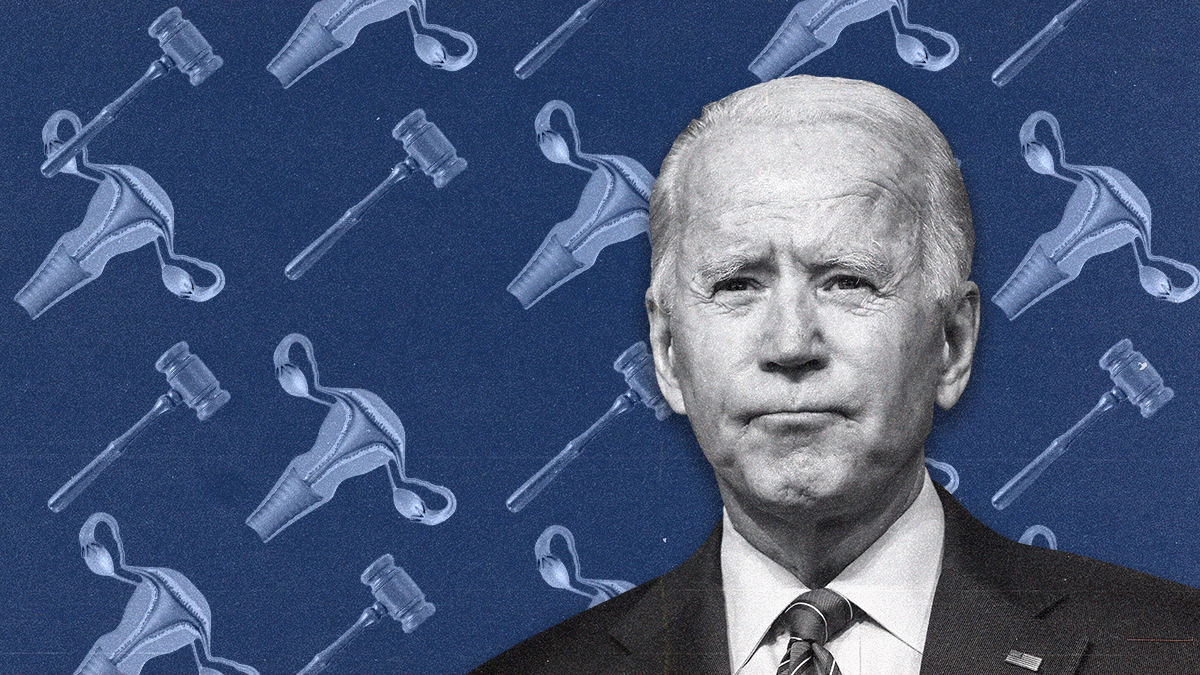July 08, 2022
Having faced mounting criticism from many Democrats for his tepid response to the recent Supreme Court ruling overturning Roe v. Wade, US President Joe Biden hit back Friday, issuing an executive order protecting some abortion rights.
Against the backdrop of the grand Roosevelt Room at the White House, Biden set out his administration’s plan to enhance sexual and reproductive health access for American women and girls, particularly those living in states where the procedure is outlawed in all or most circumstances.
Biden’s plan has a robust legal component. The White House is leveraging the full weight of the national legal apparatus – led by Attorney General Merrick Garland – to ensure lawful protection for women who access abortion pills and contraceptives or travel out of state for abortions.
Along with the White House counsel, the Department of Justice will work with a team of pro bono and private lawyers to protect medical practitioners and third parties involved in facilitating abortion care in states where it is banned – as well as for residents who seek abortions across state lines and face potential legal prosecution when they return to red states.
Still, details of the order remain scarce. The White House has directed the secretary of health and human services to come up with some sort of plan on how to preserve access to medical abortions (pills) and intrauterine devices, a form of reversible birth control, and report back within 30 days.
Moreover, Biden also said that the White House will work to protect user data on period and cycle trackers by cracking down on tech companies selling data to third parties, though it would certainly need Big Tech’s cooperation to work.
Biden’s move is unlikely to placate many Democrats who have been pushing him to go further, including by opening up federal property to abortion providers in states where the procedure is banned, thus shielding them from prosecution.
But Biden – a measured, middle-of-the road politician – has so far rebuffed those calls; he says this would be legally questionable. Besides, such blow-it-up tactics aren’t really his style.
To be sure, Biden himself has acknowledged that this isn’t significantly going to move the needle on enhancing abortion access in America: “Let me be very clear and unambiguous,” he recently said, “the only way we can secure a woman’s right to choose and the balance that existed is for Congress to restore the protections of Roe v Wade as federal law. No executive action from the president can do that.”
So what’s his message to American women? Repeatedly during the Friday press conference, he instructed voters to head to the ballot box this November and vote for pro-choice representatives so that Congress can pass a law codifying abortion rights. Many voters, however, might not take kindly to being told to fix this problem, particularly after Democrats flocked to the polls in droves in 2020, delivering Biden a Democratic-led House and Senate.From Your Site Articles
More For You
- YouTube
In this Quick Take, Ian Bremmer addresses the killing of Alex Pretti at a protest in Minneapolis, calling it “a tipping point” in America’s increasingly volatile politics.
Most Popular
- YouTube
Who decides the boundaries for artificial intelligence, and how do governments ensure public trust? Speaking at the 2026 World Economic Forum in Davos, Arancha González Laya, Dean of the Paris School of International Affairs and former Foreign Minister of Spain, emphasized the importance of clear regulations to maintain trust in technology.
- YouTube
Will AI change the balance of power in the world? At the 2026 World Economic Forum in Davos, Ian Bremmer addresses how artificial intelligence could redefine global politics, human behavior, and societal stability.
Ian Bremmer sits down with Finland’s President Alexander Stubb and the IMF’s Kristalina Georgieva on the sidelines of the World Economic Forum to discuss President Trump’s Greenland threats, the state of the global economy, and the future of the transatlantic relationship.
© 2025 GZERO Media. All Rights Reserved | A Eurasia Group media company.
